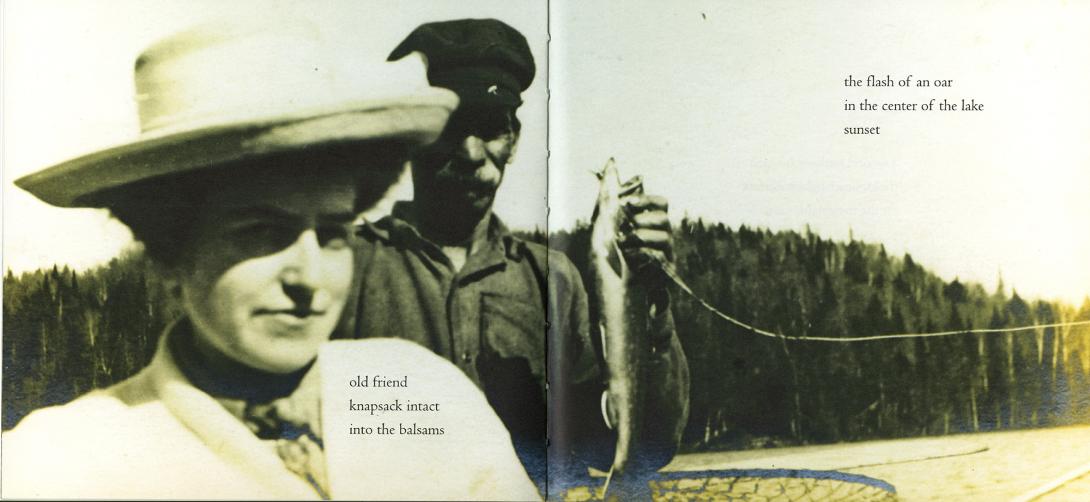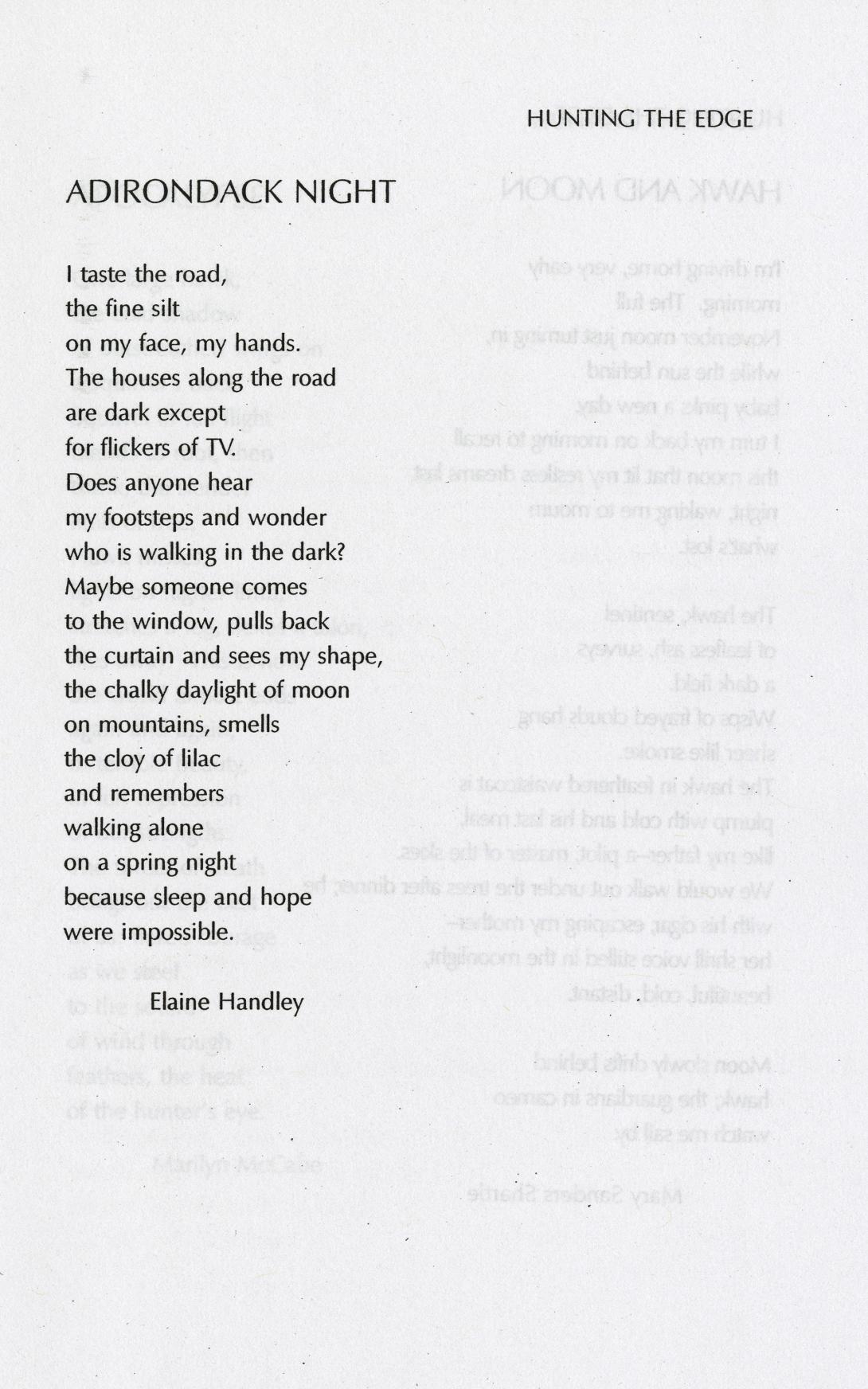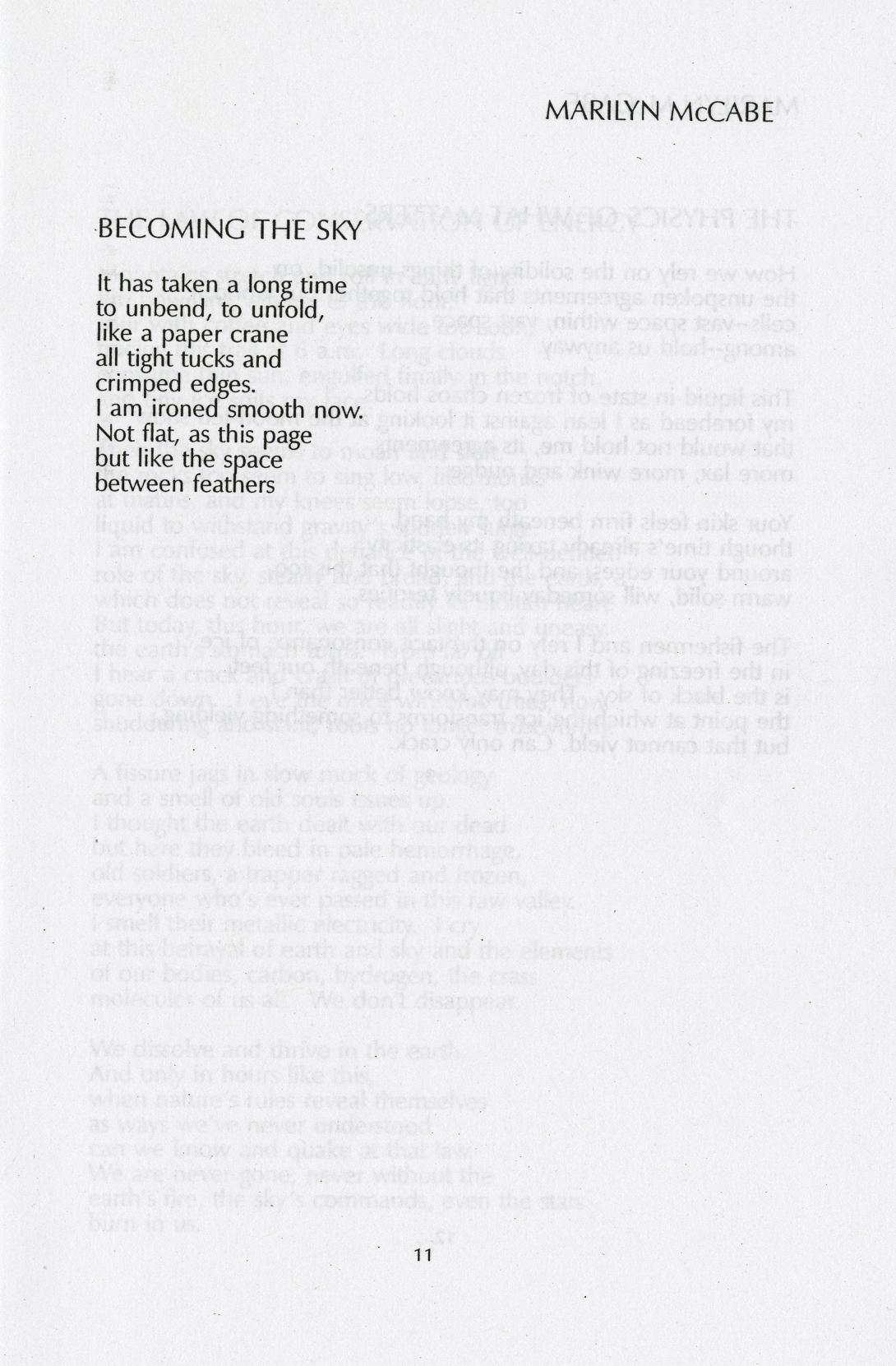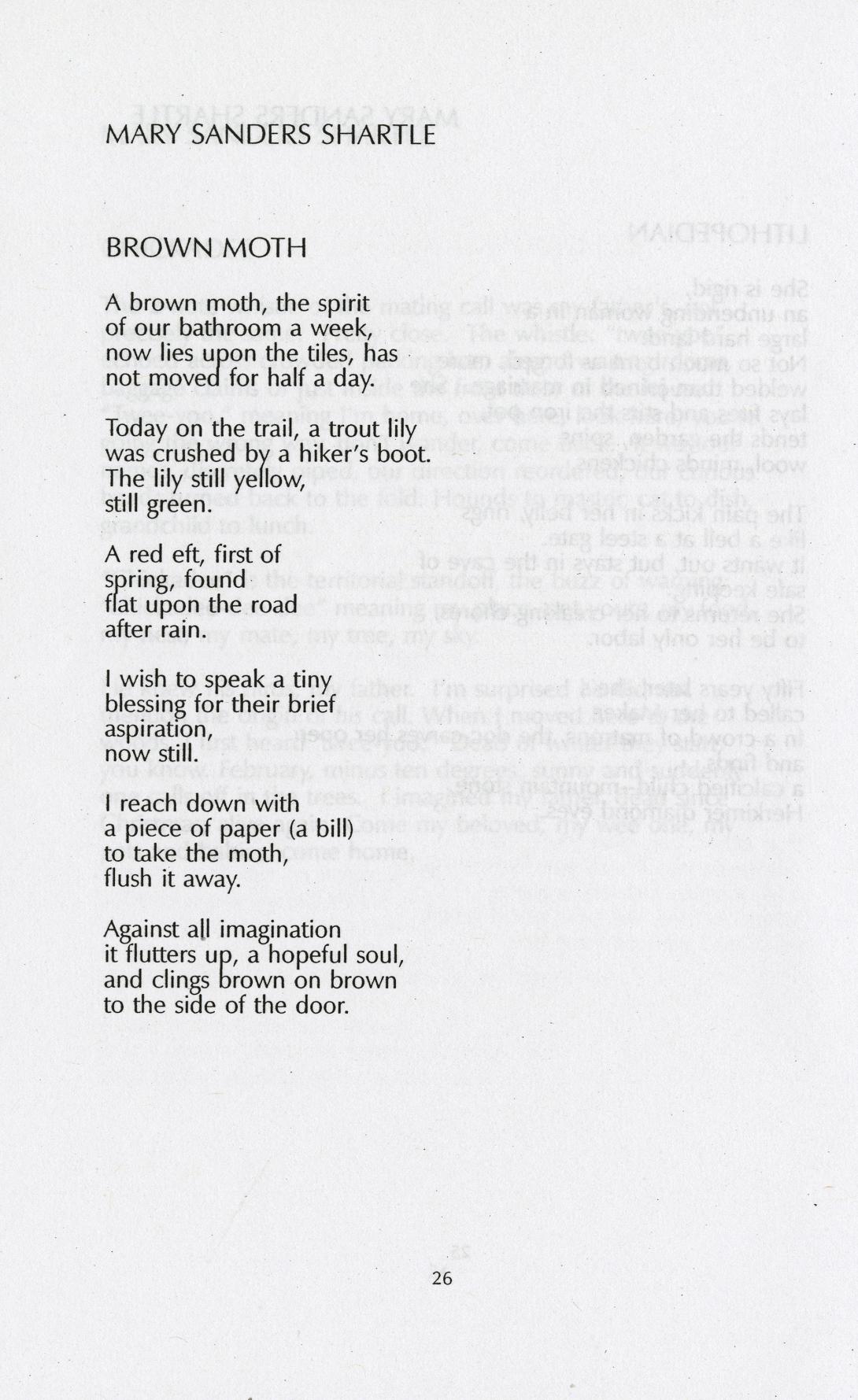Findlay, Madeleine. Empty Boathouse : Adirondack Haiku. Portsmouth, NH: Single Island Press, 2008. SPEC PS3606.I5326 E48 2008.
This book is made up of exactly what you would think: haikus about the Adirondacks. The haiku is interesting in that it must convey so much with such a small amount of space. These being the only haikus I read this summer, I felt inclined to include them in this exhibit. I chose this page in particular because I was drawn to the rhyme between “knapsack” and “intact” and also because it included such an interesting photograph.
Handley, Elaine, Marilyn McCabe, and Mary Sanders Shartle. Glacial Erratica : Three Poets on the Adirondacks, Part 2. Greenfield Center, N.Y.: 30 Acre Woods Publications, 2006. SPEC PS548.N7 G55 2006.
---. Notes from the Fire Tower : Three Poets on the Adirondacks. Greenfield Center, N.Y.: 30 Acre Woods Publications, 2006. SPEC PS548.N7 N6 2006.
Another collaboration among Adirondack poets, these two books were filled with poems about the Adirondacks. Again, I have selected three poems, my favorite from each poet.
Elaine Handley’s “Adirondack Night” reminded me a lot of Randy Lewis’ “suddenly there was a loud noise” in its sadness in isolation. I was especially affected by the last two lines, “…because sleep and hope were impossible” because I find it powerful when poems link two completely different things together with a singular connector (sleep and hope are only similar in their impossibility).
I was attracted to Marilyn McCabe’s “Becoming the Sky” for describing smoothness as “the space between two feathers,” and how that metaphor makes smoothness new. The idea of unfolding to become the sky is also interesting, especially when taking geography into account. I find the Adirondack sky to be much more open and clear than the sky in some other places which has more light pollution.
Mary Sanders Shartle’s “Brown Moth” was memorable in its ability to use the moth in the bathroom as a metaphor for the human impact on nature. A bug in the house is such a small thing in our everyday life, but when examined, becomes a much larger problem in terms of human domination over everything else.



